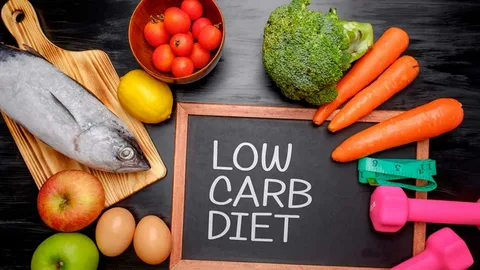Understanding Low-Carb Diets
Low-carb diets restrict carbohydrate intake, typically to less than 20-50 grams per day, depending on the specific plan. By limiting carbs, the body is forced to burn fat for fuel instead of glucose, leading to weight loss and other potential health benefits.
Benefits of Low-Carb Diets
Weight Loss
Low-carb diets have been shown to be effective for weight loss, particularly in the short term.
Improved Blood Sugar Control
Cutting carbs can help stabilize blood sugar levels and improve insulin sensitivity, making it beneficial for individuals with diabetes or prediabetes.
Reduced Risk of Chronic Diseases
Some research suggests that low-carb diets may lower the risk of heart disease, metabolic syndrome, and certain types of cancer.
Increased Satiation
Foods high in protein and healthy fats, common in low-carb diets, can help you feel full and satisfied, reducing cravings and the likelihood of overeating.
Challenges of Low-Carb Diets
Restrictive Food Choices
Low-carb diets often limit or eliminate foods like bread, pasta, fruit, and starchy vegetables, which can be challenging for some people to sustain long term.
Side Effects
Some individuals may experience side effects such as fatigue, headaches, constipation, or bad breath when first starting a low-carb diet, often referred to as the “keto flu.”
Social Implications
Following a low-carb diet may require adjustments when dining out or attending social events, potentially impacting social interactions and relationships.
Nutrient Deficiencies
Cutting out certain food groups can lead to deficiencies in essential nutrients like fiber, vitamins, and minerals if not properly balanced.
Strategies for Success on a Low-Carb Diet
Plan Ahead
Take time to meal plan and prep to ensure you have low-carb options readily available.
Focus on Whole Foods
Choose nutrient-dense, whole foods like vegetables, lean proteins, nuts, seeds, and healthy fats to meet your nutritional needs.
Stay Hydrated
Drink plenty of water throughout the day to stay hydrated and help alleviate potential side effects like constipation.
Experiment with Recipes
Get creative in the kitchen and try new low-carb recipes to keep meals interesting and satisfying.
Seek Support
Join online communities, find a support group, or work with a healthcare professional to stay motivated and accountable.
FAQs (Frequently Asked Questions
Are all low-carb diets the same?
No, there are various low-carb diets, including the ketogenic diet, Atkins diet, paleo diet, and more. Each has its own set of guidelines and macronutrient ratios, so it’s essential to choose one that aligns with your preferences and goals.
Can I still exercise on a low-carb diet?
Yes, exercise can be part of a healthy lifestyle on a low-carb diet. Some individuals may experience a temporary decrease in performance during the initial adaptation phase, but energy levels typically improve over time.
Are there any health risks associated with low-carb diets?
While low-carb diets can be safe and effective for many people, they may not be suitable for everyone, especially those with certain medical conditions. It’s essential to consult with a healthcare professional before starting any new diet plan, especially if you have underlying health concerns.
Will I regain weight if I stop following a low-carb diet?
Weight regain is possible if you return to unhealthy eating habits after stopping a low-carb diet. To maintain weight loss long term, focus on adopting sustainable lifestyle changes, including a balanced diet and regular physical activity.
Can I follow a low-carb diet if I’m vegetarian or vegan?
Yes, it’s possible to follow a low-carb diet as a vegetarian or vegan, although it may require more careful planning to ensure you’re meeting your nutritional needs. Focus on plant-based sources of protein, healthy fats, and low-carb vegetables.
How long should I stay on a low-carb diet?
The length of time you stay on a low-carb diet depends on your individual goals and preferences. Some people choose to follow a low-carb lifestyle long term, while others use it as a short-term approach to jumpstart weight loss or improve metabolic health.
Can I drink alcohol on a low-carb diet?
Alcohol can be consumed in moderation on a low-carb diet, but it’s essential to choose low-carb options and be mindful of portion sizes. Keep in mind that alcohol can impact ketosis and may slow down weight loss progress.
In conclusion
low-carb diets can be an effective tool for weight loss and improving metabolic health, but they may not be suitable for everyone. By understanding the benefits, challenges, and strategies for success, you can determine whether a low-carb approach aligns with your goals and lifestyle. Remember to consult with a healthcare professional before making any significant dietary changes, especially if you have underlying health conditions or concerns. With careful planning and perseverance, a low-carb diet can be a sustainable way to achieve your health and wellness goals.

